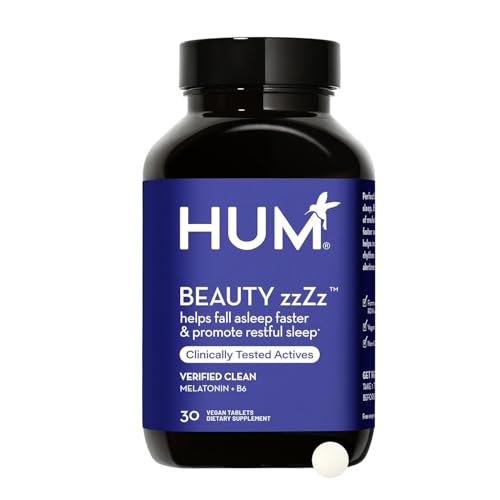Disclosure
This website is a participant in the Amazon Services LLC Associates Program, an affiliate advertising program designed to provide a means for us to earn fees by linking to Amazon.com and affiliated sites.
Introduction
If you’re searching for natural remedies to cure insomnia, you’re likely desperate for a good night’s sleep—without relying on medication. The good news? There are effective, natural ways to fall asleep faster and stay asleep longer.
Insomnia affects nearly 1 in 3 adults worldwide, and its impact goes far beyond feeling tired. Poor sleep can affect your memory, focus, mood, and even your long-term health. But here’s the hopeful truth: many cases of insomnia can be significantly improved—or even resolved—using simple, natural remedies.
Whether your sleeplessness is caused by stress, lifestyle habits, or environmental triggers, this guide explores 20 time-tested and research-backed natural remedies that promote restful sleep. From calming herbal teas and supplements to powerful relaxation techniques and lifestyle tweaks, we cover everything you need to create your own personalized sleep solution—without pharmaceuticals.
Best Sleep Remedies for Insomnia: Top 3 Natural Products You Should Try
When it comes to natural remedies for insomnia, certain products stand out for their effectiveness, quality, and user satisfaction. Here are the top three natural sleep aids you can consider incorporating into your bedtime routine:
1. Nature’s Way Calm Aid Melatonin
- Fast-acting L-theanine helps you find your calm within 30-60 minutes, perfect…
- With L-theanine, an amino acid that helps promote relaxation.* Also formulated…
- Support a calm, relaxed outlook without daytime drowsiness.* Can be taken at…
Melatonin is a hormone your body produces naturally to regulate sleep cycles. This supplement provides a gentle boost to melatonin levels, helping reset your internal clock for faster, more restful sleep. Nature’s Way is known for its high-quality, non-GMO ingredients and reliable dosage, making it a trusted choice for many struggling with insomnia.
2. Traditional Medicinals Organic Chamomile Tea
No products found.
Chamomile is a classic herbal remedy renowned for its calming and sleep-promoting properties. This tea is USDA-certified organic, free from additives, and perfect for winding down before bed. It naturally relaxes your mind and body without causing grogginess in the morning.
3. HUM Nutrition Melatonin Supreme
- SUPPORTS RESTFUL NIGHTS: Formulated with melatonin and vitamin B6 to support…
- FAST-ACTING BEDTIME SUPPORT: These sleep supplements for adults are designed to…
- MELATONIN 3 MG + B6 FORMULA: Each tablet contains a balanced blend of melatonin…
HUM Nutrition’s Melatonin Supreme combines melatonin with soothing botanicals like lemon balm and magnolia bark. This blend supports relaxation and deeper sleep phases. Its clean, vegan-friendly formula is popular among those seeking a natural, well-rounded approach to insomnia.
Lifestyle Changes to Naturally Improve Sleep
When it comes to curing insomnia, simple lifestyle changes can make a significant difference. Often, poor sleep isn’t caused by one single factor but by habits and environments that disrupt your natural sleep cycle. By making intentional adjustments, you can encourage your body to fall asleep faster and enjoy deeper rest.
Establish a Consistent Sleep Schedule
Going to bed and waking up at the same time every day—even on weekends—helps regulate your body’s internal clock, known as the circadian rhythm. When your body knows what to expect, it’s easier to transition into sleep naturally. Aim for 7 to 9 hours of sleep per night to fully restore your energy.
Create a Relaxing Bedtime Routine
Rituals signal your brain it’s time to wind down. Activities like reading a book, taking a warm bath, or practicing gentle yoga before bed can reduce stress and prepare your mind for sleep. Avoid screens and bright lights at least an hour before bedtime, as blue light suppresses melatonin production.
Optimize Your Sleep Environment
Your bedroom should be a sleep sanctuary. Keep the room cool—around 65°F (18°C) is ideal—and minimize noise and light. Invest in blackout curtains and consider white noise machines if you live in a noisy area. Comfortable bedding and a supportive mattress also enhance sleep quality.
Limit Caffeine, Alcohol, and Heavy Meals
Caffeine can linger in your system for hours, so avoid it after early afternoon. Alcohol may initially make you sleepy but disrupts sleep cycles later in the night. Heavy or spicy meals close to bedtime can cause discomfort and indigestion, preventing restful sleep.
Herbal Supplements and Natural Sleep Aids
Many people turn to herbal supplements as a natural way to combat insomnia. These remedies have been used for centuries and are backed by growing scientific evidence for their calming and sleep-enhancing effects. Unlike prescription sleep aids, herbal supplements tend to have fewer side effects and a lower risk of dependency.
Common Herbal Supplements That Promote Sleep:
- Valerian Root: Known for its mild sedative effects, valerian root can reduce the time it takes to fall asleep and improve sleep quality. It may also decrease anxiety, a common insomnia trigger.
- Chamomile: Often consumed as a tea, chamomile contains antioxidants that bind to receptors in the brain, promoting relaxation and sleepiness without grogginess.
- Lavender: Both lavender oil (used in aromatherapy) and supplements can help reduce restlessness and improve sleep quality by calming the nervous system.
- Passionflower: This herb is traditionally used to ease anxiety and insomnia. Some studies suggest it can increase overall sleep time and reduce nighttime awakenings.
- Magnesium: Although technically a mineral, magnesium helps regulate neurotransmitters that promote sleep. It can also relax muscles and ease restless legs syndrome, a condition that disrupts sleep.
How to Use Herbal Sleep Aids Safely:
- Always follow recommended dosages on packaging or consult a healthcare professional.
- Choose organic, high-quality supplements from reputable brands.
- Be patient—herbal remedies may take a few days or weeks to show effects.
- Avoid mixing multiple supplements without guidance to prevent adverse interactions.
Relaxation Techniques to Reduce Insomnia
Stress and an overactive mind are leading causes of insomnia. Learning effective relaxation techniques can calm your nervous system, ease anxiety, and prepare your body for restful sleep. These methods are natural, drug-free, and can be practiced anytime, making them powerful tools against sleeplessness.
Proven Relaxation Techniques for Better Sleep:
- Deep Breathing Exercises: Slow, deep breaths activate the parasympathetic nervous system, which lowers heart rate and blood pressure. Try the 4-7-8 technique: inhale for 4 seconds, hold for 7 seconds, then exhale slowly for 8 seconds.
- Progressive Muscle Relaxation: This involves tensing and then relaxing each muscle group, starting from your toes and moving up to your head. It helps release physical tension and promotes mental calmness.
- Meditation and Mindfulness: Practicing mindfulness meditation focuses your attention on the present moment, reducing racing thoughts. Apps like Headspace or Calm offer guided sessions specifically designed for sleep.
- Visualization: Imagine yourself in a peaceful place, such as a beach or forest. Engaging your senses in this mental imagery helps distract your mind from stress and encourages relaxation.
- Yoga and Stretching: Gentle yoga poses and stretches before bed can relieve muscle tension and improve circulation, making it easier to fall asleep.
Tips for Successful Relaxation:
- Practice these techniques regularly, ideally as part of your nightly routine.
- Combine multiple methods for enhanced effect (e.g., deep breathing followed by visualization).
- Create a quiet, comfortable space free from distractions to maximize relaxation benefits.
Dietary and Lifestyle Adjustments for Better Sleep
What you eat and how you live throughout the day can have a profound impact on your ability to sleep well. Making mindful dietary and lifestyle choices supports your body’s natural sleep-wake cycle and helps prevent insomnia.
Key Dietary Tips to Improve Sleep:
- Avoid Caffeine Late in the Day: Caffeine can stay in your system for up to 8 hours, so avoid coffee, tea, energy drinks, and chocolate after mid-afternoon.
- Limit Alcohol Consumption: While alcohol may help you fall asleep initially, it disrupts REM sleep and causes frequent awakenings later in the night.
- Eat Sleep-Promoting Foods: Foods rich in magnesium, tryptophan, and melatonin can boost sleep quality. Examples include almonds, turkey, kiwi, cherries, and oats.
- Avoid Heavy or Spicy Meals Before Bed: Eating large meals close to bedtime can cause indigestion and discomfort, making it harder to fall asleep.
Lifestyle Habits to Support Restful Sleep:
- Get Regular Daylight Exposure: Natural light during the day helps regulate your circadian rhythm and improves nighttime sleep.
- Exercise Regularly: Moderate physical activity, especially in the morning or early afternoon, promotes deeper sleep. Avoid vigorous workouts close to bedtime.
- Limit Naps: Long or late-afternoon naps can interfere with nighttime sleep. Keep naps under 30 minutes and before 3 PM.
- Manage Stress: Incorporate stress-relief practices such as journaling, therapy, or hobbies that relax you throughout the day.
Environmental Factors That Affect Sleep Quality
Your sleep environment plays a crucial role in how well you fall asleep and stay asleep. Small adjustments to your surroundings can create a calm, comfortable space that encourages restorative rest and combats insomnia naturally.
Essential Environmental Tips for Better Sleep:
- Control Room Temperature: Keep your bedroom cool, ideally between 60-67°F (15-19°C). Cooler temperatures help lower your core body temperature, signaling it’s time to sleep.
- Minimize Noise: Use earplugs, white noise machines, or fans to drown out disruptive sounds like traffic or noisy neighbors.
- Block Out Light: Use blackout curtains or eye masks to prevent artificial light from interfering with melatonin production. Even small light sources from phones or clocks can affect sleep quality.
- Invest in Comfortable Bedding: Choose a supportive mattress and pillows that suit your sleep style. Soft, breathable sheets also help regulate temperature and reduce discomfort.
- Remove Electronics: Keep smartphones, tablets, and TVs out of the bedroom to avoid blue light exposure and mental stimulation before bedtime.
- Add Relaxing Scents: Aromatherapy with lavender or chamomile essential oils can promote relaxation and signal your brain to prepare for sleep.
Conclusion
Insomnia can feel overwhelming, but the good news is that natural remedies offer many effective ways to improve your sleep without medication. By adopting a holistic approach—combining lifestyle changes, herbal supplements, relaxation techniques, dietary adjustments, and optimizing your sleep environment—you can regain control over your nights and wake up refreshed.
Key Takeaways:
- Consistent sleep schedules and calming bedtime routines set the stage for restful sleep.
- Herbal supplements like valerian root, chamomile, and magnesium can ease insomnia naturally.
- Relaxation methods such as deep breathing, meditation, and progressive muscle relaxation reduce stress and promote sleep.
- Mindful eating and avoiding stimulants like caffeine and alcohol improve sleep quality.
- Creating a cool, quiet, and dark bedroom environment supports uninterrupted rest.
Frequently Asked Questions About Natural Remedies to Cure Insomnia
What are the safest natural remedies for insomnia?
- Herbal teas like chamomile and valerian root
- Melatonin supplements in low doses
- Relaxation techniques such as meditation and deep breathing
- Maintaining a regular sleep schedule and optimizing the bedroom environment
How long does it take for natural remedies to work?
- Effects vary by individual and remedy
- Herbal supplements may take several days to weeks for full benefits
- Lifestyle changes and relaxation techniques can provide more immediate relief when practiced consistently
Can natural remedies completely cure chronic insomnia?
- Natural remedies can significantly reduce symptoms and improve sleep quality
- Severe or chronic insomnia may require professional evaluation and treatment
- Combining natural approaches with medical advice often yields the best results
Are there any risks associated with natural sleep aids?
- Most natural remedies have low risk when used as directed
- Possible interactions with medications, so consult a healthcare provider if taking other drugs
- Avoid excessive doses of supplements like melatonin or magnesium
Should I stop using prescription sleep medications if I want to try natural remedies?
- Never stop prescription medications without consulting your doctor
- Natural remedies can often be used alongside prescribed treatments under medical supervision
- Transitioning to natural methods should be gradual and monitored by a healthcare professional


